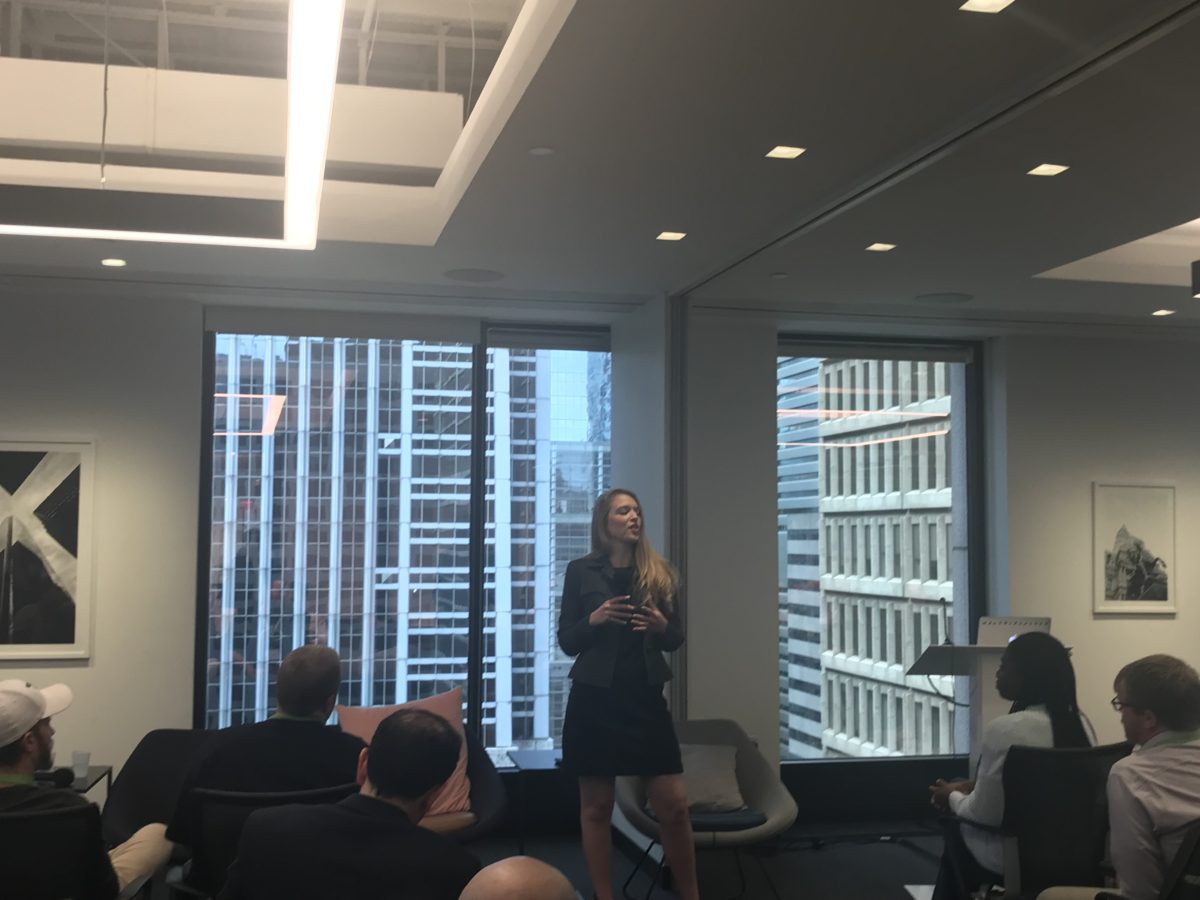Last year, Allysa Dittmar faced a choice.
Dittmar was working full time in what she saw at the time as a “dream job” in Gov. Larry Hogan’s Office of the Deaf and Hard of Hearing on accessibility policy and initiatives.
At the same time, she was also working to grow a startup: Dittmar is the cofounder and president of 2019 realLIST honoree ClearMask, which created a full-face transparent surgical mask that’s designed to improve visual communication. The company was making progress that was getting difficult to balance with a full-time role.
“I think a lot of startup founders have to wrestle with the question: Do you give up your current commitment or current full-time job to focus 100 percent on your company and potentially see it succeed, or do you stay within your current commitment or job and potentially see it stumble falter or fail, and I had to wrestle with that question,” Dittmar said on Thursday in Philadelphia at a session that brought together founders from around the Mid-Atlantic to discuss lessons of failure and resilience. It was part of Introduced by Technical.ly, a daylong event held as part of Philly Tech Week 2019.
ClearMask’s story began a few years earlier, when Dittmar was set to undergo surgery. Dittmar, who is deaf, said the requested interpreter didn’t arrive. This left her unable to understand the specialists who were about to perform the procedure, causing lots of anxiety.
“After that experience, my surgeon did come up to me and say, ‘I’m very sorry, I wish we had a transparent surgical mask to improve communication, not only for you but also for doctors and my whole team,'” she said.
Finding none, Dittmar and cofounder Aaron Hsu were resolved to create such a solution, and began working with a team of fellow Johns Hopkins students and alums. They began to see that other patient groups could benefit, including children, older patients and immigrants. As they progressed and saw the demand, the time required and commitment became more significant.
The decision to leave her full-time job was a difficult one. Having started in the role with the governor’s office after completing graduate school, it offered the chance to make an impact, as well as the stability and professional advantages of a full-time role.
But she thought about why startups succeed or fail. Along with the product and business model, it also comes down to leadership and commitment, she said.
In March of 2018, she went full-time with ClearMask. The company has since reached a new phase, making progress on manufacturing and is readying a prototype to submit to regulators.
“Now as I look back a year later, I don’t have regrets, because I know that if I didn’t leave my job I wouldn’t be able to dedicate 100% to my company,” she said.
Here are lessons she took from the experience:
- “In the startup world, you have to be uncomfortable” — In contrast to a full-time role, Dittmar said entrepreneurship is naturally unsettling, given the risks involved. In this case, too much comfort might mean something isn’t right.
- Take your time — Founders want to move fast. But it’s important to realize the path isn’t always clear.
- Frame your mistakes — Humans make mistakes. What’s important is moving forward. After all, the takeaway is “what we learn from it, instead of defining yourself by those mistakes,” she said.
On the theme of the latter point, that’s why it’s worth being honest and open with stories like those that were told last week. After all, she said, “we’re all human.”







